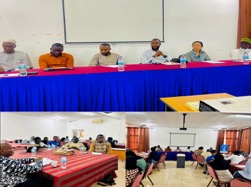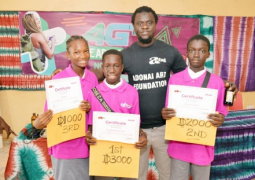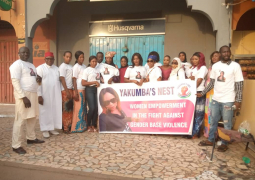
NaNA was mandated to coordinate all nutrition and its related activities with partners and documents such as the National Nutrition Policy, Multisectoral Nutrition Strategic Plan, Common Results Framework among others were developed.
According to the consultants, the goal of the nutrition investment plan is to improve the Gambian population’s nutritional and health status, especially those of the most vulnerable groups such as women before, during and after pregnancy.
The investment plan was also aimed at including infants and young children, micronutrient deficient adolescents, women and children under-five, people infected and affected by HIV/AIDS and the socio-economically deprived.
At the validation workshop, Malang N. Fofana, acting executive director, NaNA pointed out the importance of the investment plan 2024-2030, which he said, targets the entire population.
While highlighting challenges of nutrition in the country, Fofana reminded that they needed to come up with strategies and address those challenges.
“Having strategies is one aspect but we need investment,” Fofana stated.
Momodou Gassama, World Health Organization representative, extended appreciation to NaNA for going that far in realising the nutrition investment plan in the country.
He commended officials for the initiative and said that the draft nutrition documents entailed vital information that could go a long way.
Gassama emphasised that the documents also indicated best practices as in line with WHO procedures, affirming that ‘it was the same trend’.
Ousman Ceesay, deputy permanent secretary, Office of the Vice President, acknowledged that the government clearly articulated the role of a well-nourished population towards the attainment of the National Development Plan objectives as outlined in the Human Capital Development Pillar.
He said through joint efforts they can mobilise adequate resources to support and sustain their efforts in scaling up proven cost-effective nutrition interventions for the reduction of malnutrition and mortality among the population and to achieve the World Health Assembly targets for nutrition by 2025; and Sustainable Development Goals (SDGs) targets by 2030.
The Gambia Nutrition Investment Plan (2024-2030), an accompaniment to the National Nutrition Policy (2021 - 2025) and its related Multi-Sectoral Nutrition Strategic Plan (2023 - 2025), seeks to support initiatives to address the major nutritional problems in The Gambia as a resource mobilisation tool.
Other speakers at the event included Bakary Dampha, UNICEF representative and Michiko Terada, World Food Programme representative.




